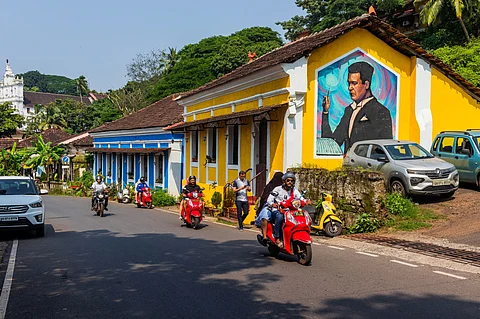
- Destinations
- Experiences
- Stay
- What's new
- Celebrating People
- Responsible Tourism
- CampaignsCampaigns
- SubscribeSubscribe
- Buy Now

Travellers heading to Goa are often introduced to a well-known issue: the so-called "taxi mafia" that operates in this idyllic beach destination. Upon arriving at the airport or railway station, visitors are taken aback by the exorbitant fares charged by local cab drivers. Unlike in many other parts of India, taxis in Goa typically do not operate on a metre system; instead, drivers have the freedom to set their own prices, often resulting in shocking rates for even short distances. This lack of regulation has sparked frustration and confusion among tourists who expect fair and transparent pricing. Given this challenging landscape, the recent announcement regarding the possible introduction of app-based taxi services like Ola and Uber was met with widespread enthusiasm. However, the joy was short-lived. Goa’s Chief Minister Pramod Sawant has said that app-based taxi aggregators like Uber and Ola will not be allowed to operate in the state. Both tourists and locals are accusing the government of prioritising taxi unions over public convenience.
In May this year, the government of Goa introduced a comprehensive draft policy entitled ‘Goa Transport Aggregator Guidelines, 2025,’ aimed at establishing a regulatory framework that would permit app-based ride-hailing services to operate within the state. This initiative was initially met with enthusiasm from various stakeholders. However, the government has since retracted its support for this policy, likely influenced by significant pressure from local taxi unions and their advocates.
The primary justification provided by the Goa government for this shift in position is to safeguard the livelihoods of local taxi operators. The taxi unions of Goa have historically opposed the entry of national ride-hailing companies, as they contend that such platforms could lead to fare undercutting, jeopardising the financial stability of independent taxi drivers who do not have the advantage of platform-driven subsidies.
State officials have also voiced concerns about the regulatory challenges that app-based services might introduce, including unpredictable pricing structures and potential law and order issues during the peak tourist season, when demand for transportation typically surges.
The ban on app-based cabs in Goa has reignited the debate over transportation options in the state. Local cab unions often oppose the entry of technology-driven platforms. Both tourists and locals frequently express frustration over high fares and the limited alternatives available. In Goa, transportation options are scarce.
"If you have dinner at a restaurant in Panjim and want to get back to your hotel in Calangute, you'll need to hire a cab, which can cost thousands of rupees," says IT specialist Devleena Gupta, who has vacationed in the sunshine state many times. "The local bus service shuts down around 7 to 7:30 PM, making it challenging to find alternative transportation. And even if they were open, you would have to find transportation from the bus stop to your hotel. Auto-rickshaws are also hard to come by, and motor taxis can sometimes feel unsafe." Gupta adds that she and her friends have had to rethink their plans due to the lack of transport options.
